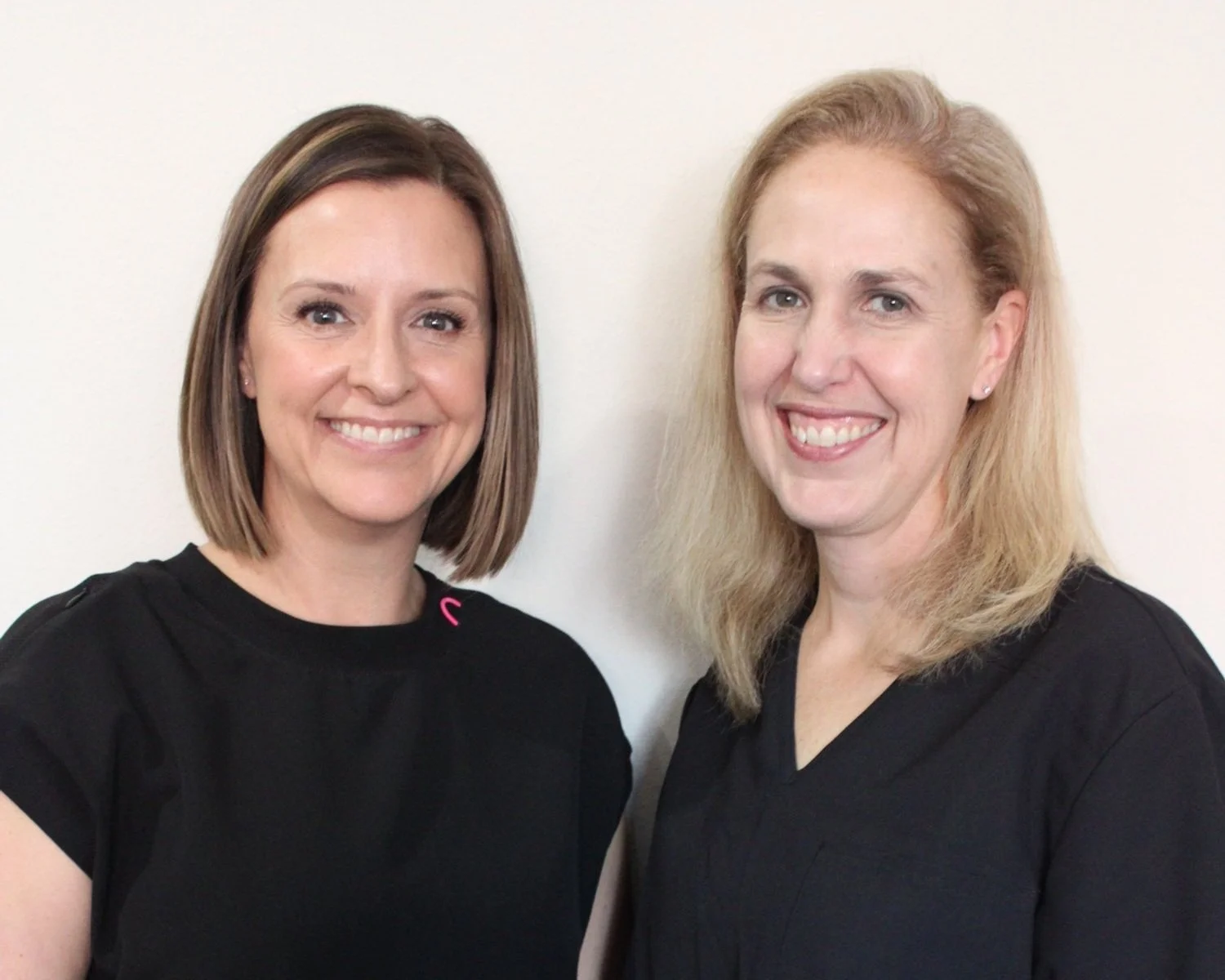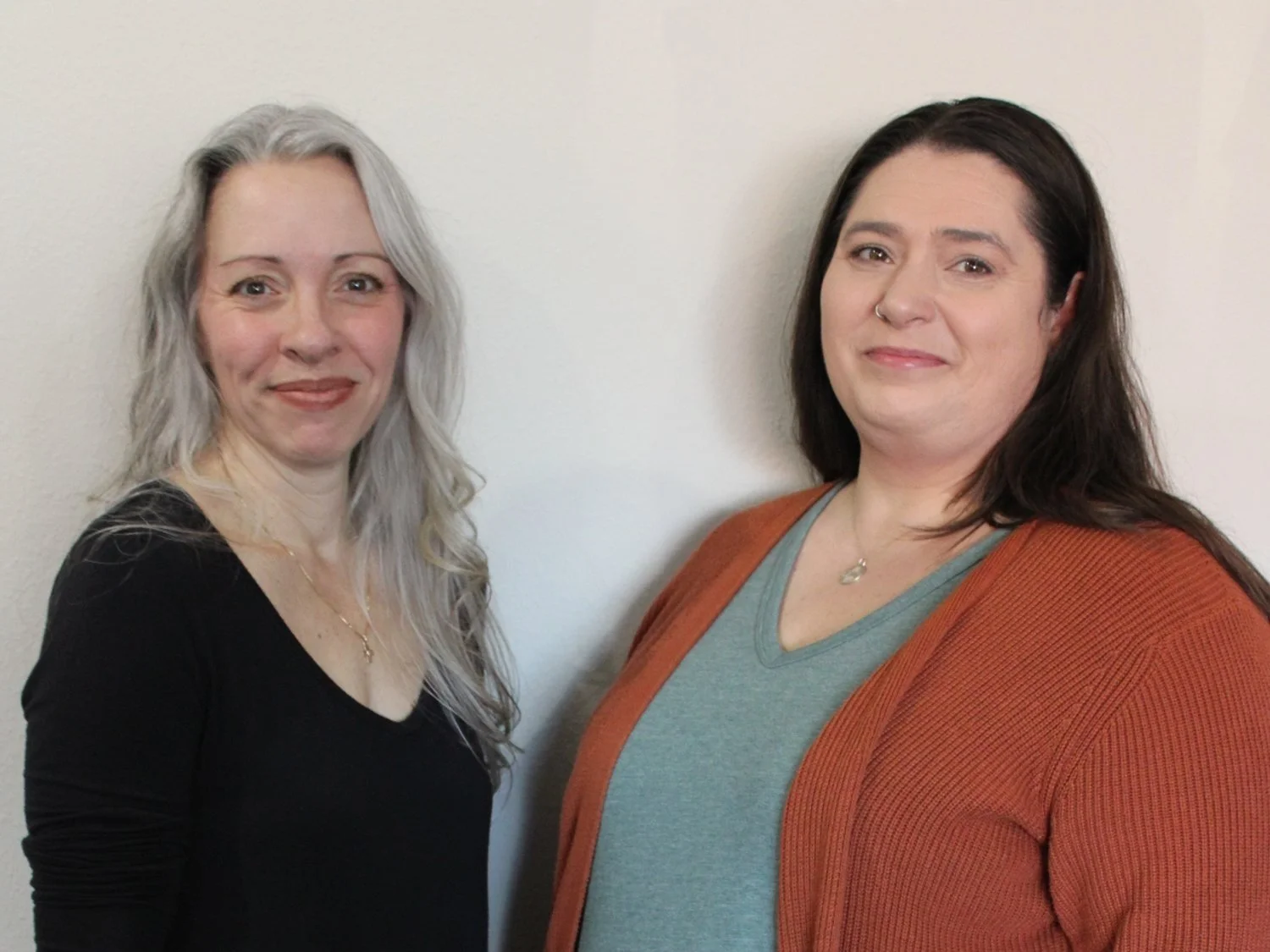Why Choose Us?
FREE TRAININGS AND RESOURCES WITH ALL OF OUR PACKAGES
We are adding resources and training for our clients regularly and customize your plan so that you can get the maximum benefit.
EXPERIENCED AND KNOWLEDGEABLE THERAPISTS
Our therapists work hard to keep up with current research and programs. We want to be able to meet our client's needs with effective and low-cost programs.
ONLINE BILL PAYMENT
We offer online billing an payments to simplify your life.
Our Services
-
Speech and Language Therapy isn’t just about how your child talks, but about all forms of communication. It looks developmental skills including oral motor for speaking and chewing/swallowing, auditory and visual processing skills for attention and memory as well as spoken and written language skills for learning and social communication. If you think your child may be struggling with eating, talking, learning, or socializing , an Speech/Language Therapist can help determine why your child is struggling and help develop FUN activities to help your child grow and succeed in their daily life. Our staff will work closely with the child and the caregivers to help with building skills and confidence in being able to successfully navigate daily events.
-
Occupational Therapy uses play and child friendly activities and games to work on a variety of developmental skills including fine, visual, and gross motor skills, self care skills, sensory processing and attention, executive functioning skills, and play and social skills. If you think your child may be struggling with any of these areas, an OT can help determine why your child is struggling and help develop FUN activities to help your child grow and succeed in their daily life so they can be the amazing kid they are! We work closely with caregivers to help give you the tools you need to feel confident in how you can help your child at home and how you can advocate for your child in their community.
-
Pediatric physical therapy services are designed to help children of all ages improve their strength, coordination, mobility, and overall function. Our specialized therapists work closely with families to create personalized treatment plans that support each child’s unique developmental needs. Through fun, engaging, and evidence-based exercises, we help children build confidence and achieve their highest level of independence. Our goal is to make movement enjoyable and empowering, ensuring that every child has the opportunity to thrive.
-
As a parent, it can be challenging to see your child struggle with unwanted or problematic behaviors. But there is hope. Behavior therapy can help your child develop positive behaviors and reduce or eliminate those that are causing them distress. For common childhood conditions like ADHD, anxiety, depression, and behavior disorders, behavior therapy and cognitive-behavior therapy approaches are effective in reducing symptoms.
It’s important to note, however, that there is limited information on which type of therapy is best suited for treating specific childhood mental disorders. But what we do know is that behavioral therapy can help children gain control over self-defeating thoughts and become less impulsive and defiant, leading to fewer tantrums. It can also enhance their problem-solving abilities, coping mechanisms, self-control, self-image, and overall mental health.
As a parent, you play a crucial role in your child’s therapy. Young children often lack the motivation to change their behavior on their own, so your involvement throughout the counseling process is essential. It takes time and effort to change behavior, and your child will need your support along the way. Just remember, changing behavior is a process, and it’s okay if it takes time. Your dedication and commitment to helping your child develop positive behaviors will pay off in the long run.
-
An RDN can help with dietary choices for conditions like celiac disease, food allergies, or lactose intolerance. They can provide guidance on identifying foods to avoid and finding tasty alternatives to keep your diet balanced. Nutritionists can also help with meal plans and lifestyle changes while educating on healthier choices and providing customized solutions.
Autistic children are 8x more likely to have GI issues, including dysbiosis in their intestines, which may explain increased GI issues. Around 45-95% of autistic individuals have sensory processing difficulties. Children on the autism spectrum are five times more likely to have mealtime outbursts, be selective about their food, or have ritualistic eating behaviors.
-
Item description
Speech Language Pathology
Pediatric speech-language pathologists (SLPs) address a wide range of communication, cognitive-linguistic, and feeding/swallowing challenges in children. Their work supports speech, language, social communication, and learning abilities. Some key areas they address include:
1. Speech Sound Production (Articulation & Phonology)
Helping children pronounce sounds correctly
Addressing speech disorders like articulation delays and phonological disorders
Treating childhood apraxia of speech (CAS), a motor-planning disorder
2. Expressive & Receptive Language Development
Expressive Language: Expanding vocabulary, forming sentences, grammar, and storytelling
Receptive Language: Understanding words, following directions, answering questions
3. Auditory Processing & Listening Skills
Auditory Processing Disorder (APD): Difficulty processing and interpreting sounds correctly
Listening Comprehension: Understanding spoken language, following multi-step instructions
Strategies to improve sound discrimination, auditory memory, and auditory attention
4. Fluency (Stuttering)
Helping children develop smoother speech patterns
Managing repetitions, prolongations, and blocks associated with stuttering
5. Voice Disorders
Treating hoarseness, vocal strain, or breathy voice caused by misuse or medical conditions
6. Social Communication & Pragmatic Language
Teaching conversational skills, turn-taking, and body language
Helping children with autism spectrum disorder (ASD) or social communication difficulties
7. Dyslexia & Reading Comprehension
SLPs help with phonological awareness, a key skill in learning to read (e.g., rhyming, sound blending, and segmenting words)
Supporting letter-sound correspondence, decoding, spelling, and reading fluency
Improving reading comprehension and narrative skills
8. Feeding & Swallowing Therapy (Oral-Motor & Sensory-Based Challenges)
Addressing picky eating, difficulty chewing/swallowing, or sensory aversions
Strengthening oral muscles for safe and effective eating
Occupational Therapy
Pediatric Occupational Therapy (OT) focuses on helping children develop the skills they need for daily activities, independence, and overall well-being. Here are the key areas pediatric OTs address:
1. Fine Motor Skills
Hand strength and dexterity
Grasping and manipulating objects (e.g., holding a pencil, using scissors)
Hand-eye coordination
2. Sensory Processing & Integration
Hypersensitivity or hyposensitivity to touch, sounds, or movement
Difficulty with proprioception (body awareness) or vestibular processing (balance/motion)
Sensory-seeking or sensory-avoiding behaviors
3. Self-Care & Daily Living Skills
Dressing, tying shoes, and buttoning clothes
Using utensils, opening containers, and eating independently
Brushing teeth, bathing, and toileting skills
4. Handwriting & Pre-Writing Skills
Letter formation, spacing, and legibility
Pencil grip and pressure control
Visual-motor integration
5. Cognitive & Executive Functioning
Attention, focus, and problem-solving
Following multi-step directions
Organization and time management skills
6. Social & Play Skills
Taking turns, sharing, and cooperative play
Emotional regulation and frustration tolerance
Understanding social cues and interactions
7. Adaptive Equipment & Modifications
Recommending tools for daily tasks (e.g., weighted utensils, pencil grips)
Environmental modifications to support learning and independence
7. Primitive Reflex Integration
Moro Reflex (fight-or-flight response, startle reflex)
ATNR (Asymmetrical Tonic Neck Reflex) (affects hand-eye coordination, crossing midline)
STNR (Symmetrical Tonic Neck Reflex) (affects posture, crawling, and sitting)
Tonic Labyrinthine Reflex (TLR) (affects balance and coordination)
Palmar Reflex (affects handwriting and fine motor skills)
Physical Therapy
Pediatric Physical Therapy addresses a wide range of areas to help children develop and improve their movement, strength, coordination, and overall physical function. Key areas include:
1. Gross Motor Development
Crawling, standing, walking, running, jumping
Balance and coordination
Strength and endurance
2. Neuromuscular Conditions
Cerebral palsy
Muscular dystrophy
Spina bifida
Hypotonia or hypertonia
3. Orthopedic Concerns
Torticollis and plagiocephaly
Scoliosis
Joint hypermobility (e.g., Ehlers-Danlos Syndrome)
Sports injuries
4. Developmental Delays
Delayed sitting, crawling, or walking
Poor coordination or motor planning
5. Gait & Posture Abnormalities
Toe-walking
In-toeing or out-toeing
Flat feet or other foot/ankle concerns
6. Sensory & Motor Integration
Challenges with movement-based activities
Difficulty with proprioception or vestibular processing
7. Adaptive Equipment & Assistive Devices
Orthotics, walkers, wheelchairs, and other mobility aids
Training on the use of adaptive equipment
Behavioral Health
Pediatric behavioral health specialists, such as Licensed Professional Counselors (LPCs) and Psychologists, address a variety of emotional, behavioral, and mental health concerns in children and adolescents. Their work supports emotional regulation, coping skills, behavior management, and overall mental well-being.
Key areas they address include:
1. Emotional & Mood Disorders
Anxiety disorders (generalized anxiety, social anxiety, separation anxiety, phobias)
Depressive disorders (major depression, persistent depressive disorder)
Mood regulation (helping children cope with big emotions, mood swings)
2. Behavioral Challenges & Self-Regulation
Oppositional Defiant Disorder (ODD) (frequent anger, defiance, and rule-breaking)
Attention-Deficit/Hyperactivity Disorder (ADHD) (impulsivity, inattention, hyperactivity)
Tantrums, aggression, and difficulty following rules
3. Trauma, Stress, & Adjustment Difficulties
Post-Traumatic Stress Disorder (PTSD) and trauma-related symptoms
Grief and loss counseling (helping children process the death of a loved one)
Life transitions (divorce, moving, school changes, adoption, foster care)
4. Social & Interpersonal Skills
Developing friendship skills, empathy, conflict resolution
Bullying (helping victims and those engaging in bullying behavior)
Supporting children with autism spectrum disorder (ASD) or social communication challenges
5. Family & Parent Coaching
Parenting strategies for managing challenging behaviors
Strengthening parent-child relationships and attachment
Family counseling to improve communication and family dynamics
6. Self-Esteem & Identity Development
Helping children build confidence, self-awareness, and self-acceptance
Supporting body image and healthy self-concept
7. Academic & School-Related Concerns
School refusal, test anxiety, and academic stress
Supporting children with learning disabilities, ADHD, and executive functioning challenges
8. Behavioral Therapy & Coping Strategies
Cognitive Behavioral Therapy (CBT): Managing negative thoughts and developing coping skills
Dialectical Behavior Therapy (DBT): Emotion regulation and distress tolerance
Play Therapy: Expressing emotions through play, often used for young children
Dietitics
A pediatric dietitian specializes in nutrition for infants, children, and adolescents, addressing a wide range of dietary and health concerns to promote proper growth and development. Key areas they focus on include:
1. Growth & Development
Ensuring children meet appropriate height, weight, and developmental milestones
Assessing and managing failure to thrive (FTT) or rapid weight gain
2. Infant & Childhood Nutrition
Breastfeeding and formula guidance for infants
Introducing solids and transitioning to table foods
Ensuring balanced diets for toddlers, school-aged children, and teens
3. Food Allergies & Intolerances
Managing common food allergies (e.g., dairy, soy, peanuts, eggs, gluten)
Helping families with elimination diets and safe food substitutions
4. Picky Eating & Feeding Difficulties
Strategies to expand food variety for selective eaters
Working with children who have sensory-based food aversions
Collaborating with speech therapists and occupational therapists on feeding therapy
5. Gastrointestinal Disorders
Nutrition support for constipation, acid reflux, irritable bowel syndrome (IBS), and inflammatory bowel disease (IBD)
Helping children with celiac disease or lactose intolerance
6. Special Medical & Genetic Conditions
Managing dietary needs for conditions such as:
Diabetes (Type 1 & Type 2)
Cystic fibrosis
Metabolic disorders (e.g., PKU, galactosemia)
7. Weight Management & Healthy Lifestyle
Supporting underweight or overweight children with tailored nutrition plans
Preventing and managing childhood obesity
Encouraging healthy eating habits and physical activity
8. Eating Disorders & Disordered Eating
Nutritional support for anorexia, bulimia, and binge-eating disorder
Helping children develop a healthy relationship with food
9. Sports Nutrition
Ensuring young athletes meet their energy and hydration needs
Supporting muscle growth, endurance, and recovery
10. Tube Feeding & Specialized Diets
Enteral nutrition (G-tube, NG tube feeding plans)
Creating specialized diets for neurological conditions, autism, or sensory processing challenges
Synrosound Training
Synrosound Training
What should we know about this product? How is it made, how much does it cost, what color and size is it? Better descriptions result in more sales.
Contact us
Interested in one of our services? Fill out some info and we will be in touch shortly. We can’t wait to hear from you!








